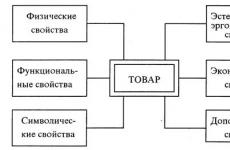Russian State University of Justice official. Russian State University of Justice
Russian Academy of Justice (RAP)
The Russian Academy of Justice (RAJ) is a public institution of higher education that aims to implement a number of educational programs secondary vocational and higher education, as well as pre-graduate programs. Classes at the academy are taught by practicing lawyers and judges, eminent scholars in the field of law.
The Academy is deservedly considered one of the most authoritative institutions in the system of legal education, which allows students to be aware of the most topical issues and problems that arise in judicial practice. Among all legal universities in Russia, the Academy consistently ranks second - fourth place.
The Russian Academy of Justice has a good material base. Students of law faculties study in the same educational building, which gives them a great advantage, as it has computer classes, a reading room, a library, and Wi-Fi Internet access. It is here that you can get a diploma after school or after a law college under the first higher education program, including a master's degree in law.
One of the main differences Law Academy from other institutions is the presence in it of such directions in educational activities as training for the judiciary and federal judges, as well as the training of newly appointed judges.
To date, more than 15,000 students are studying at the Russian Academy of Justice and its branches under the programs of higher economic and legal education, and under the programs of secondary vocational education– more than 3,000 people.
Contemporary legal education: features of training in RAP
Education at the Russian Academy of Justice is conducted in modern, popular areas:
Secondary vocational education:
land and property relations (after school, grade 9);
law and organization of social security (after school, 9 classes).
Higher professional education:
Bachelor of Management (after college);
Bachelor of Laws (after school, college).
The legal magistracy implements the most demanded areas in the labor market. This is a row master's programs, which are focused on subsequent work in the judiciary:
Lawyer in criminal, civil and administrative proceedings.
Judicial work on the resolution of economic disputes.
Judicial protection of intellectual property.
Full-time students of the Faculty of Law are entitled to a deferment from conscription, and also have the opportunity to study at the military department. It trains specialists with a legal education for the military court system.
Faculty of Advanced Training and Retraining of Judges, Civil Servants of Courts of General Jurisdiction and the Judicial Department (FPC of Judges and Civil Servants of Courts of General Jurisdiction).
In today's conditions of constant improvement of the current legislation, and in order to ensure a unified judicial practice throughout the territory Russian Federation, The Russian Academy of Justice conducts advanced training for employees of the courts and the Judicial Department.
Students of the advanced training faculty can be judges of city, regional, supreme courts, civil servants of departments (departments), courts of general jurisdiction, the Judicial Department at the Supreme Court.
The organization of training for each category of students is built in accordance with the developed educational and thematic plans. They already take into account changes in the current legislation, as well as features of the consideration of certain categories of cases.
Russian Academy of Justice (RAJ): the quality of education is at a high level!
Russian State University justice (RGUP)(until October 15, 2014 - Russian Academy of Justice (RAP)) - federal state budgetary educational institution higher education, legal and economic university of the Russian Federation, which trains specialists for the judiciary. Issues diplomas state sample, has state accreditation. The founder of the University is the Supreme Court of the Russian Federation.
| Russian State University of Justice (RGUP) |
|
|---|---|
| international title | Russian State University of Justice |
| Former names | Russian Academy of Justice |
| Motto | We create the law of the future |
| Year of foundation | |
| Rector | Ershov, Valentin Valentinovich |
| Location | Russia Russia , Moscow |
| Legal address | Moscow , Novocheryomushkinskaya street, d.69a |
| Website | rgup.ru |
Among the teachers of the University are representatives of the judiciary, public authorities, as well as well-known lawyers, economists and scientists of international level (including current judges).
History of University
The Russian Academy of Justice was established in accordance with Decree of the President of the Russian Federation of May 11, 1998 No. 528 “On the Russian Academy of Justice” and Decree of the Government of the Russian Federation of October 28, 1999 No. 1199 “On the Russian Academy of Justice”.
The founders of the Russian Academy of Justice were Supreme Court of the Russian Federation and Supreme Arbitration Court of the Russian Federation. Since 2014, it has been renamed the Russian State University of Justice (RSUP).
University managment
- East Siberian in Irkutsk
- Far Eastern in Khabarovsk
- West Siberian in Tomsk
- Kazansky in Kazan
- Volga in Nizhny Novgorod
- Rostov in Rostov-on-Don
- Northwestern in St. Petersburg
- North Caucasian in Krasnodar
- Central in Voronezh
- Ural in Chelyabinsk
- Crimean in
schedule Working mode:
Mon., Tue., Wed., Thu. from 10:00 to 17:00
Fri. from 10:00 to 15:00
Latest reviews of RPMU
Marita Kucherovskaya 13:57 12/19/2018I entered the Russian State Unitary Enterprise as a high school student right after college (TNF) and I can say that you really need to study here. The information given by lecturers, and in RPMU, as a rule, by practitioners (investigators, former judges, prosecutors) is voluminous, meaningful, without water. You get the basic knowledge in the classes themselves, and not on the Internet (this is often the case in other universities). Education is fair. If you try, study, teach, then the teachers always notice and encourage it. At the end to...
Lyudmila Khronenko 23:46 05/27/2013
The Russian Academy of Justice (RAJ) is one of the leading law schools in Russia. Of course, there are a lot of educational institutions of this profile today. At the same time, the RAP has its own undeniable advantages, which allowed me to make conscious choice upon admission - one of the most good decisions In my life.
First of all, the founders of the RAP are the Supreme Court and the Supreme Court of Arbitration. The purpose of creating a university is to train competent personnel specifically for the judicial system...
Gallery RPMU



general information
Federal State Budgetary Educational Institution of Higher Education "Russian State University of Justice"
Branches of RPMU
License
No. 01127 is valid Indefinitely from 11/13/2014
Accreditation
No. 01146 is valid from 12/16/2014 to 04/01/2019
Previous names of RPMU
- Russian Academy of Justice
Monitoring results of the Ministry of Education and Science for RPMU
| Index | 18 year | 17 year | 16 year | 15 year | 14 year |
| Performance indicator (out of 7 points) | 5 | 6 | 6 | 5 | 5 |
| Average USE score in all specialties and forms of education | 68.53 | 66.8 | 66.03 | 61.43 | 71.26 |
| Average USE score credited to the budget | 85.48 | 85.15 | 86.48 | 83.89 | 90.44 |
| Average USE score enrolled on a commercial basis | 64.85 | 63.38 | 62.06 | 55.25 | 67.96 |
| The average for all specialties is the minimum USE score enrolled in the full-time department | 49.78 | 46.97 | 46.25 | 42.68 | 50.15 |
| Number of students | 3605 | 3525 | 3246 | 3656 | 2994 |
| full-time department | 1826 | 1824 | 1692 | 1766 | 1505 |
| Part-time department | 196 | 118 | 157 | 126 | 146 |
| Extramural | 1583 | 1583 | 1397 | 1764 | 1343 |
| All data |
Russian Academy of Justice
| Russian Academy of Justice (RAP) |
|
|
File:RAP |
|
| international title |
Russian Academy of Justice |
|---|---|
| Motto |
We create the law of the future |
| Year of foundation | |
| Rector | |
| Location | |
| Legal address |
Moscow, Novocheremushkinskaya, 69a |
| Website | |
Russian Academy of Justice (RAP)- federal state budgetary educational institution of higher professional education, the leading law school of the Russian Federation, which trains specialists for the judiciary. Issues state diplomas, has state accreditation.
History of the Academy
The Russian Academy of Justice was established in accordance with Decree of the President of the Russian Federation of May 11, 1998 No. 528 “On the Russian Academy of Justice” and Decree of the Government of the Russian Federation of October 28, 1999 No. 1199 “On the Russian Academy of Justice”. The founders of the Russian Academy of Justice are the Supreme Court of the Russian Federation and the Supreme Arbitration Court of the Russian Federation.
Academy Leadership
- Ershov, Valentin Valentinovich - Rector of the Russian Academy of Justice, Doctor of Law, Professor, Honored Lawyer of the Russian Federation, Honored Scientist of the Russian Federation, Academician of the Russian Academy of Natural Sciences.
- Korol Lyudmila Mikhailovna - First Vice-Rector of the Russian Academy of Justice.
- Lomtev Sergey Petrovich - Vice-Rector for scientific work Russian Academy of Justice, Doctor of Law, Professor, Honored Scientist of the Russian Federation.
- Nikitin Sergey Vasilyevich - Vice-Rector for Academic and Educational Work of the Russian Academy of Justice, Doctor of Law, Associate Professor, Honored Lawyer of the Russian Federation.
- Sapronov Vladimir Petrovich - Vice-Rector for Financial and Economic Affairs of the Russian Academy of Justice.
- Naumova Olga Yurievna - Vice-Rector for Personnel of the Russian Academy of Justice.
Notable teachers
- Vladimir Evgenyevich Safonov - Professor of the Department of Constitutional Law since 2001, earlier (from March 1996 to January 2001) he worked as a judge of the Constitutional Court of the Republic of Bashkortostan, one of the leaders of the Just Cause party, where he has been a member of the Control and Audit Commission since 2008.
- Nikolai Vasilyevich Vitruk - Head of the Department of Constitutional Law from 2005 to 2012 (Judge Constitutional Court Russian Federation, retired).
Structure of the Academy
Implementation of the educational process
Faculties
- faculty of retraining, advanced training of judges, civil servants of courts of general jurisdiction and the Judicial Department
- Faculty of advanced training and retraining of judges and civil servants of arbitration courts
- faculty of training specialists for the judiciary full-time education (full-time law faculty)
- faculty of training specialists for the judiciary part-time education (correspondence faculty of law)
- faculty of training specialists on the basis of secondary vocational education in legal and economic profiles (part-time and part-time education)
Chairs
- administrative law;
- military;
- civil law;
- civil, arbitration and administrative procedural law;
- European law;
- land and environmental law;
- history of law and state;
- foreign languages;
- information law, informatics and mathematics;
- constitutional law;
- international law;
- general education disciplines;
- organization of judicial and law enforcement activities;
- labor law and social security law;
- theory of law, state and judiciary;
- criminal law;
- criminal procedure law and criminology them. N. Radutnaya;
- philosophy and social and humanitarian disciplines;
- financial law;
- physical culture;
- economy.
Crime Lab
Educational and methodological management
- Department of Licensing, Accreditation, Education Quality Management and Implementation of Innovative Teaching Methods;
- department of organization of practices and employment of graduates;
- department of organization of educational and methodical work;
- department of operational planning of the educational process;
- department of organizing the recruitment of applicants;
- department of organization of educational work;
- department of career guidance and pre-university training;
- department for pre-university training for those entering the faculty of training specialists for the judiciary on the basis of secondary vocational education in a legal profile;
- department of vocational guidance and preparation for admission to the faculty of secondary vocational education for the training of specialists for the judiciary (college);
- legal clinic.
Implementation of research activities
Departments
- civil, arbitration and administrative process;
- comparative law;
- theory and history of law and judiciary;
- criminal law research;
- problems of criminal justice;
- civil law;
- constitutional and legal research.
theoretical and practical problems of judicial protection of intellectual property
RAP branches
The Russian Academy of Justice has 10 branches:
- West Siberian
Address: 634050, Tomsk, pl. Lenina, d.2
- Far Eastern
Address: 680014, Khabarovsk, East highway, 49
- Ural
Address: 454084, Chelyabinsk, Pobedy Ave., 160
- Rostov
Address: 344038, Rostov-on-Don, Lenin Ave., 66
- Central
Address: 394006, Voronezh, st. 20th anniversary of October, 95
- Kazansky
Address: Republic of Tatarstan, 420088, Kazan, st. 2nd Azinskaya, 7-a
- Northwestern
Address: 193015, St. Petersburg, Aleksandrovsky Park, 5, Lit. A B C D E.
- Volga
Address: 603115, Nizhny Novgorod, Gagarin Avenue, 17A
- East Siberian
Address: 664031, Irkutsk, st. Ivana Franko, d.23a
- North Caucasian
Address: 350002, Krasnodar, st. Levanevsky, 187
Publishing
The Russian Academy of Justice is actively engaged in publishing activities. The Academy established the RAP Publishing House, which publishes scientific, educational, and reference literature. There is an online store of the Academy's publications. The scientific and practical journal "Russian Justice" is published monthly. The student newspaper "Themis" is also published monthly.
The international cooperation
The Russian Academy of Justice actively participates in international legal cooperation. Permanent foreign partners of the Academy are such organizations and institutions as the European Commission, the Council of Europe, the French Embassy in Russia, the British Council, the Russian-American Judicial Partnership, the German Foundation for International Legal Cooperation, the Russian-Canadian Judicial Partnership. The Academy has concluded cooperation agreements with educational institutions in the field of student education: law school University of Belgrade, the Faculty of Law of the University of Cologne, the University of Paris-X11, the Ikh Zasag University of Mongolia, the United Nations Institute for Teaching and Research, the Institute of World Law of Emory University, the University of London and the Faculty of Law of the University of San Diego (USA).
Links
- The Academy publishes a student newspaper, the student newspaper "Themis" (in color and in a considerable circulation, which is rare).
- The Russian Academy of Justice is a laureate of the "Themis" award for 2005 in the nomination "Justice"
Sources
| Higher educational institutions of Moscow | |
|---|---|
| State universities (- medical, - military) | |
| Universities | |
| academies | |
| Institutes | |
| Conservatories | |
| Branches | |
| Non-state universities (- spiritual) | |
| Universities | |
| academies | |
| Institutes |
Biblical and theological St. app. Andrew Birkat Yitzhak graduate School cultural studies Humanitarian Eurasian Open Institute Service industries Commerce and Law Open business education and design Psychoanalysis contemporary art Bank Television and radio broadcasting Economics, management and law Psychological and Social Institute Moscow Institute of Modern Academic Education |






